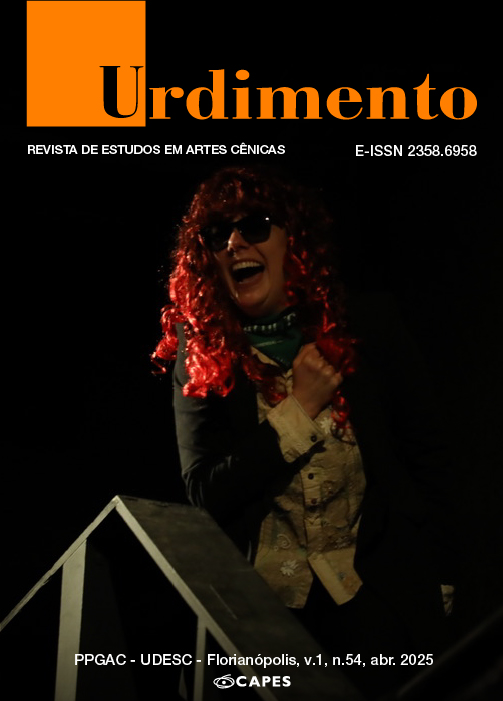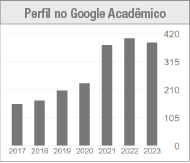Dialectics at play: experiments with the Brechtian Learning Play
DOI:
https://doi.org/10.5965/1414573101542025e101Keywords:
theatrical game, dialectics, learning play, Bertolt Brecht, theater pedagogyAbstract
Reflections on a performance carried out by the Igreja Dialética Brechtiana project, having as object of analysis the proposition of a teaching and learning process of the dialectical thinking through theatrical play. The experience with two playful procedures was taken as material for the study. The game with the trial scene and the game of changing roles, placed in relation to the dialectical triad and the concept of dialectics at rest, and with tools from Bertolt Brecht’s learning plays, such as the interruption of the action and the displacement of the action from the stage to the audience. The conceptual reflection took place in dialogue with Walter Benjamin and Theodor W. Adorno, in addition to Brecht himself.
Downloads
References
ADORNO, Theodor W. Introdução à dialética. Trad. Erick Calheiros de Lima. São Paulo: Editora Unesp, 2022.
ARENDT, Hannah. “A crise na cultura: sua importância social e política”. Entre o passado e o futuro. Trad. Mauro W. Barbosa. São Paulo: Perspectiva, 2011.
BENJAMIN, Walter. Ensaios sobre Brecht. Trad. Cláudia Abeling. São Paulo: Boitempo, 2017.
BRECHT, Bertolt. A peça didática de Baden Baden sobre o acordo. Teatro Completo, volume 3. Trad. Fernando Peixoto. Rio de Janeiro: Paz e Terra, 1988.
KONDER, Leandro. O que é dialética. São Paulo: Brasiliense, 1981.
KOUDELA, Ingrid D. Brecht: um jogo de aprendizagem. São Paulo: Perspectiva, 2010.
KOUDELA, Ingrid D.; Almeida Junior, José S. Léxico de Pedagogia do Teatro. São Paulo: Perspectiva, 2015.
NETTO, José Paulo. Introdução ao estudo do método de Marx. São Paulo: Expressão Popular,2011.
Published
How to Cite
Issue
Section
License
Copyright (c) 2025 Urdimento: Revista de Estudos em Artes Cênicas

This work is licensed under a Creative Commons Attribution 4.0 International License.
Copyright Statement
The articles published by the magazine are free to use. The copyright is all assigned to the magazine. The articles whose authors are identified represent the expression from the point of view of their authors and not the official position of the journal Urdimento. The author (s) undertakes whenever publishing material relating to the article published in Revista Urdimento mention the said publication as follows: This article was originally published by Urdimento magazine in its volume (put the volume), number (put the number) in the year of (put the year) and can be accessed at:
http://www.revistas.udesc.br/index.php/urdimento
This work is licensed under a Creative Commons Attribution 4.0 International License.




